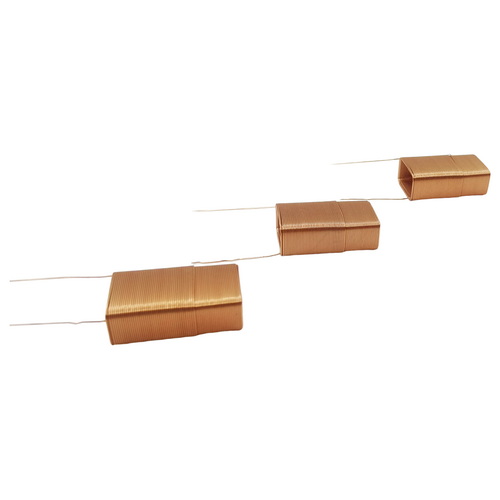With the continuous development of technology, RFID technology is a key component in various RFID induction coils that uses radio frequency identification technology (RFID) to achieve item tracking and information collection. The application of RFID induction coils is becoming increasingly widespread in various industries, especially in logistics, retail, and supply chain management. RFID induction coils have demonstrated their unique advantages.
The first significant advantage of RFID induction coils is the improved efficiency of item tracking. Traditional barcode systems require manual scanning, while RFID induction coils can achieve non-contact recognition. Through RFID tags, users can quickly read information without looking directly at the tag, greatly improving work efficiency. For example, in warehouse management, staff can achieve real-time monitoring and management of thousands of items by setting up multiple RFID induction coils, thereby reducing labor costs and error rates.
The second advantage of RFID induction coils is that they improve the accuracy of data collection. Due to the real-time update of the status and location of items by RFID induction coils, enterprises can obtain more accurate and comprehensive data. This real-time capability not only reduces the impact of human factors on data, but also helps businesses make more accurate decisions. For example, on the production line, RFID induction coils can monitor every production process, promptly identify and correct potential problems, and ensure the smooth operation of the production process.
RFID induction coils also have strong anti-interference capabilities, making their application in complex environments more reliable. Traditional barcode technology often fails in situations such as stains, low light, and strong electromagnetic interference, while RFID induction coils can effectively address these challenges. Its non-contact characteristics enable it to maintain efficient recognition capabilities even in harsh environments, which is an important advantage for fields such as industrial production and logistics transportation.

The application of RFID induction coils in inventory management has also demonstrated its value. By combining RFID induction coils with enterprise resource planning (ERP) systems, companies can achieve dynamic management of inventory. This real-time monitoring and data analysis can not only reduce inventory costs, but also help enterprises optimize supply chain management and ensure timely supply of products. For example, when the inventory is below the set threshold, the system will automatically generate a purchase order, effectively avoiding sales losses caused by stockouts.
The application of RFID induction coils also helps to enhance customer experience. In the retail industry, RFID technology can accelerate the checkout process and reduce customer waiting time. When customers self checkout, they only need to place the products with RFID tags on the RFID induction coil, and the system can automatically identify and complete the settlement, greatly improving the convenience and efficiency of shopping. In addition, merchants can also obtain customers' shopping habits and preferences through RFID induction coils, thereby achieving personalized marketing strategies.
Finally, the cost of RFID induction coils is gradually decreasing, making their application in various industries increasingly feasible. With the advancement of technology, the production cost of RFID tags and induction coils is decreasing, which enables more small and medium-sized enterprises to afford the deployment of RFID systems. Compared to traditional management methods, the return on investment of RFID induction coils is constantly improving.
In summary, RFID induction coils have significant application advantages in improving efficiency, enhancing accuracy, and improving customer experience. With the continuous advancement of technology and the reduction of costs, the application fields of RFID induction coils will become more extensive in the future, bringing new opportunities and challenges to the development of various industries.